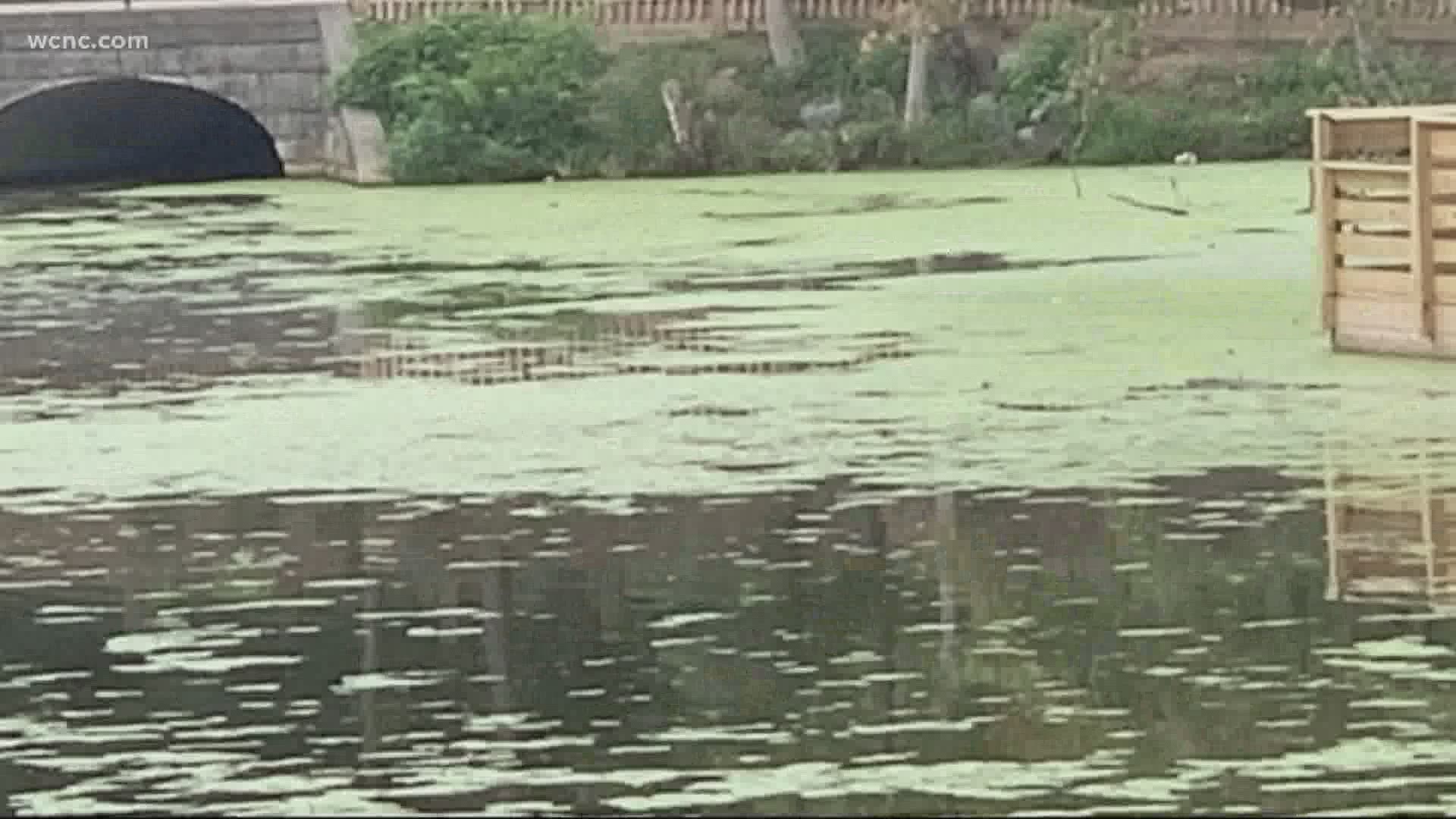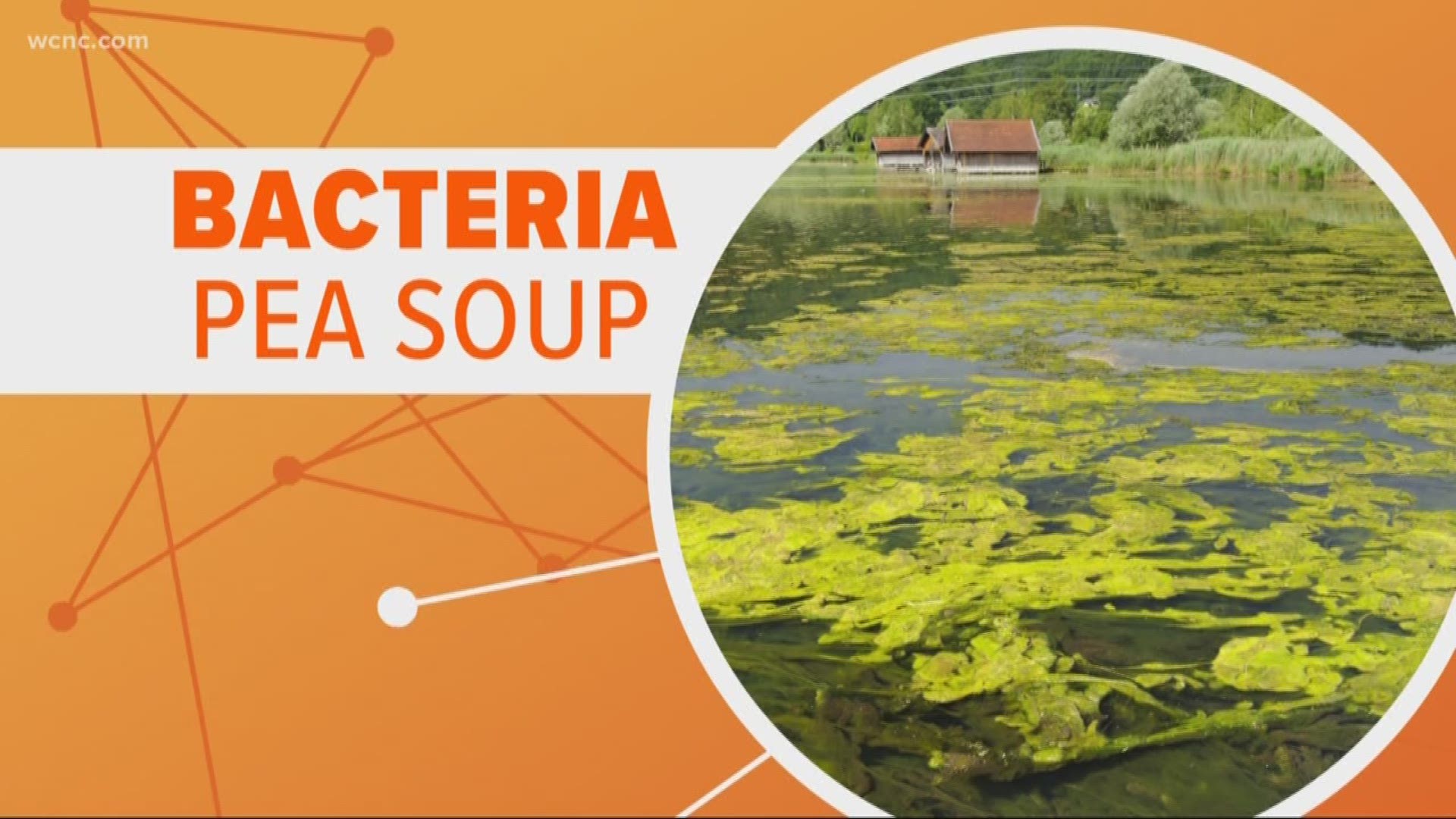CHARLOTTE, N.C. — Friday, July 17 was day number eight of 90 degrees or higher, and reports of blue-green algae have been spotted in Mecklenburg County.
Once water temperatures get above 75 degrees or higher, blue algae are possible. This is why it flourishes from now until early Fall.
Stormwater is prioritizing eight ponds out of 34 that tested positive the algae last year. The two that are most frequently monitored are here at Freedom Park and Park Road Park.
“We have identified both of those ponds as having blue-green algae. But neither of these locations are toxic,” said Rusty Rozzelle, Program Manager of the Mecklenburg County Water Quality Program.
This is also the first year they will be testing for toxins as their yearly studies become more in-depth. Not all blue-green algae are toxic but that status can change quickly. One pond that is actively toxic right now is the Belle Johnston pond in Pineville
FACT: Even though it is called algae it is actually a bacteria called cyanobacteria.
The risk is the highest when you consume blue-green directly. This is why dogs are more susceptible.
“The biggest concern is pets. Dogs are more likely to get in the water on a hot summer day. So our advice to pet owners is keep your pets out of the pond,” advises Rozzelle.
Here are the three things to look for:
- Discolored Water – water may appear bright green/blue-green in color. And dying algae looks milky and blue with an odor.
- Surface Scum – some algae can form a thick scum across the waters’ surface. You often see these along the shorelines
- Flecks and grass clippings – some algae accumulate into colonies that can look like grass clippings
When in doubt, just keep out. And if you see discolored water please call 311. Storm Water only monitors public ponds but they will respond to private ponds on a case by case basis.


